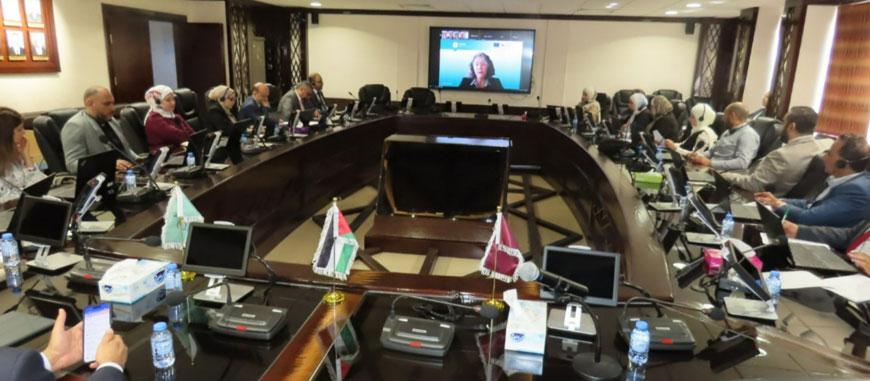You are here
Gov’t urged to continue working towards public sector reform
By Dana Al Emam - Jan 17,2015 - Last updated at Jan 17,2015

AMMAN — The Organisation for Economic Cooperation and Development (OECD) on Saturday urged Jordan to further engage in public governance reform programmes.
Speaking at the Seventh Government Leaders Forum, OECD Deputy Secretary General Mari Kiviniem said Jordan was the first country in the Middle East and North Africa to join the organisation’s governance programme.
Jordan is a partner in the organisation’s network on public procurement, Kiviniem added at the event, organised by the Ministry of Public Sector Development and held under the patronage of Prime Minister Abdullah Ensour.
“Since 2011, Jordan has been involved in OECD’s Sigma programme, which is a joint initiative of the EU and OECD that seeks to strengthen public governance systems and public administration capacities,” she noted.
Sigma works mainly with the Finance Ministry and the Audit Bureau on reforming public internal financial control, according to Kiviniem, who said OECD plans to work with the Ombudsman Bureau and the Anti-Corruption Commission this year.
The OECD representative highlighted the need for governments across the globe to develop “inclusive public service visions”, backed up with an “effective” policy-making process that ensures public participation in order to regain public trust.
She added that the OECD, which works with 100 countries including 34 member states, helps governments develop governance practices by providing “qualitative and quantitative” analyses of 50 indicators of government activity.
“The next step is building capacities of involved governments and strengthening standards and practices of public institutions,” Kiviniem said.
She underscored the importance of incorporating innovation into public services as well as piloting and prototyping, as the public sector should be allowed the chance for trial and error.
Kiviniem, former prime minister of Finland, shared her country’s experience in public sector governance.
“Public sector reform must be based on convincing service providers to offer more efficient services, with a higher quality,” she said, adding that Finland has witnessed major reforms in regional state administration and the restructuring of municipalities.
Noting that the restructuring was “difficult to achieve” as six public agencies were merged into two and affected some 5,600 employees, she said decreasing the number of municipalities by 20 per cent was achieved over a period of seven years.
Furthermore, Kiviniem highlighted the importance of reaching a consensus with political opposition, describing it as “the only way to proceed in reform”, which should be gradual and inclusive of “all relevant decision makers”.
In his address at the forum, Public Sector Development Minister Khleef Al Khawaldeh said public sector leadership should be further empowered in order to become a “trusted decision-making and policy-formation authority”.
“This forum seeks to introduce the Finnish experience in public administration and controlling public spending, as Finland is a country that achieved high growth rates,” he said.
In November 2014, the Ministry of Public Sector Development hosted Ireland’s Minister for Public Expenditure and Reform Brendan Howlin to share his country’s experience in public administration reform and controlling public expenditure with directors and secretaries general of ministries and public institutions.
The OECD aims to promote policies that seek to improve the economic and social well-being of people around the world by providing a forum in which governments can work together to share experiences and seek solutions to common problems, according to the organisation’s website.
Related Articles
AMMAN — Despite the reform efforts over the years, and the success achieved in some individual aspects of the process, Jordan's public secto
AMMAN — Jordan is moving ahead with reform despite regional crises, especially the Syrian refugee crisis, in addition to challenges of pover
AMMAN — In line with the comprehensive modernisation vision of His Majesty King Abdullah II, particularly the political modernisatio














